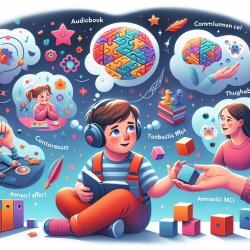Introduction
Bullying in schools is a pervasive issue that affects the mental health of adolescents worldwide. Recent research has highlighted the importance of understanding the roles of bystanders in bullying situations and how these roles impact mental health outcomes. The study "School Bullying, Bystander Behavior, and Mental Health among Adolescents: The Mediating Roles of Self-Efficacy and Coping Styles" provides valuable insights into these dynamics, focusing on the mediating roles of self-efficacy and coping styles.
Key Findings
The study, conducted on 11,734 students from secondary schools in Suzhou, China, found significant correlations between bystander behavior and mental health outcomes. Negative bystander behavior was positively associated with mental health problems such as anxiety, depression, and sleep disturbances. In contrast, positive bystander behavior was negatively associated with these issues, indicating a protective effect.
Furthermore, the research identified self-efficacy and coping styles as mediators in the relationship between bullying behaviors and mental health outcomes. This suggests that enhancing self-efficacy and promoting adaptive coping styles could mitigate the adverse psychological effects of bullying.
Implications for Practitioners
For practitioners working in educational settings, these findings underscore the importance of addressing bystander behavior in bullying interventions. Encouraging students to adopt positive bystander behaviors can be a crucial strategy in reducing the overall impact of bullying on mental health.
- Promote Self-Efficacy: Programs that build students' confidence in their ability to intervene can empower them to act positively in bullying situations.
- Teach Adaptive Coping Styles: Educating students on effective coping mechanisms can help them manage stress and reduce the likelihood of mental health issues.
- Develop Comprehensive Interventions: Interventions should involve multiple stakeholders, including educators, parents, and policymakers, to create a supportive environment for positive bystander behavior.
Encouraging Further Research
While this study provides valuable insights, it also highlights areas for further research. Future studies could explore the impact of cultural differences on bystander behavior and mental health outcomes. Additionally, longitudinal studies could provide more information on the long-term effects of bystander interventions.
To read the original research paper, please follow this link: School Bullying, Bystander Behavior, and Mental Health among Adolescents: The Mediating Roles of Self-Efficacy and Coping Styles.










